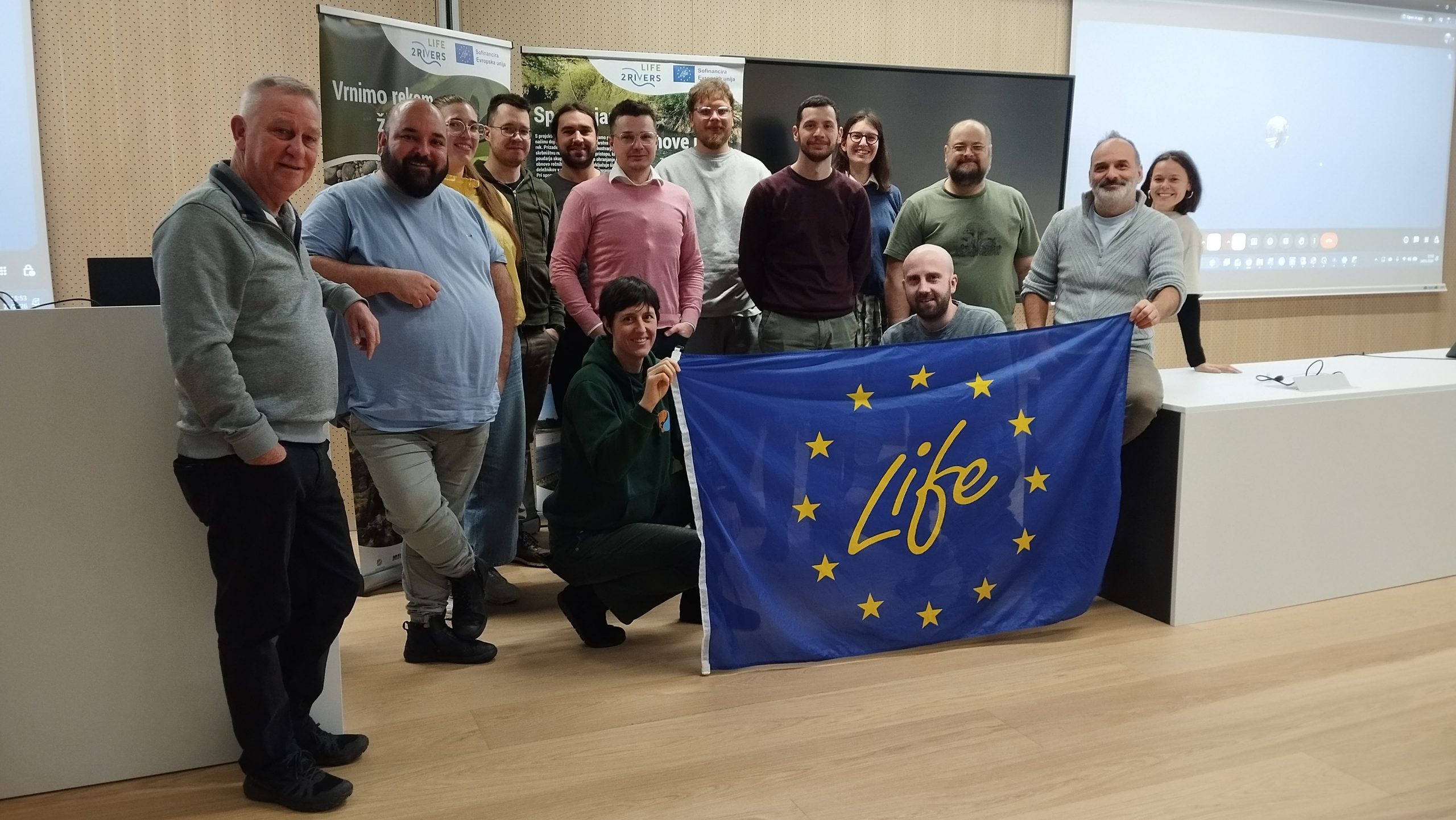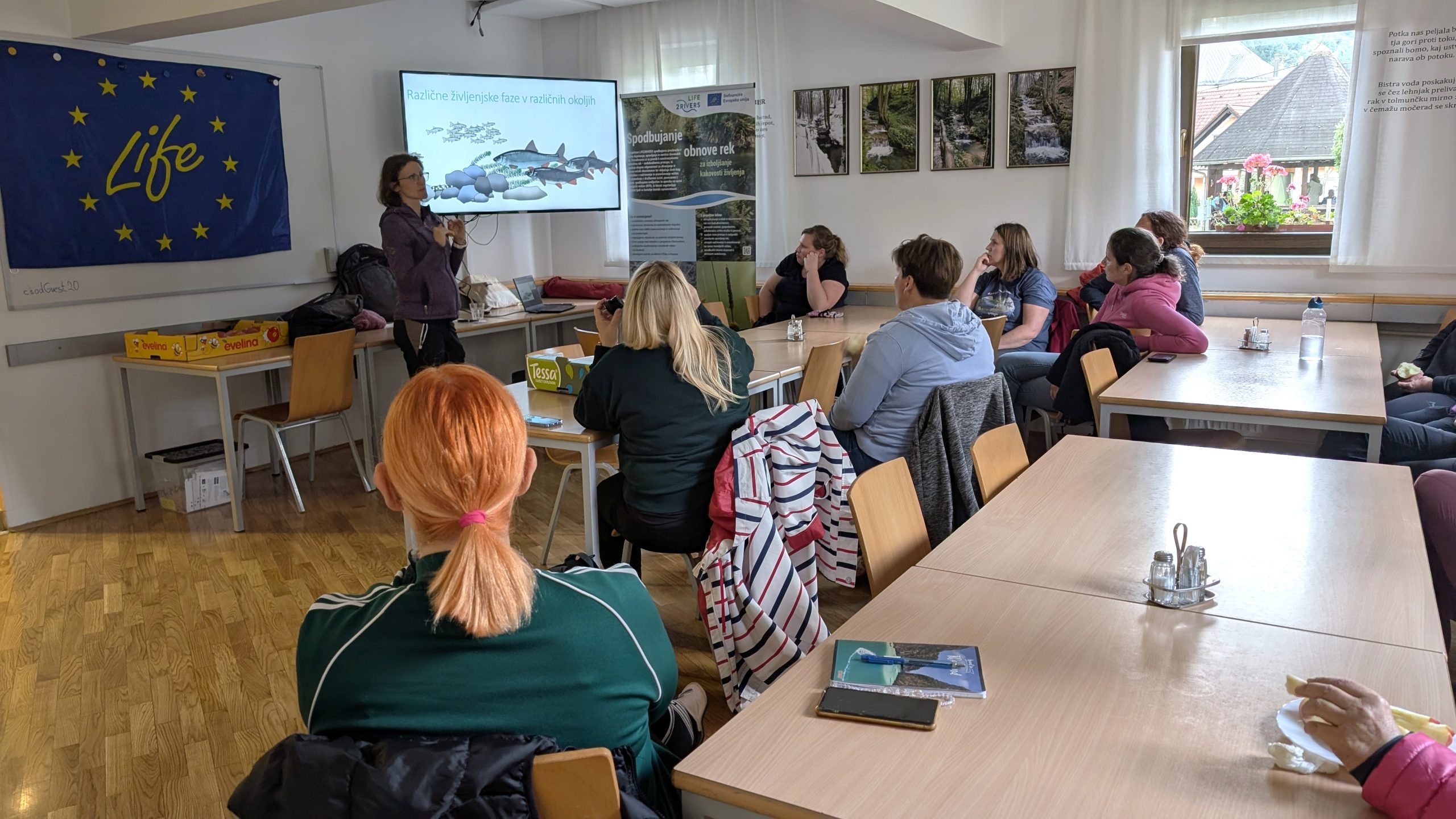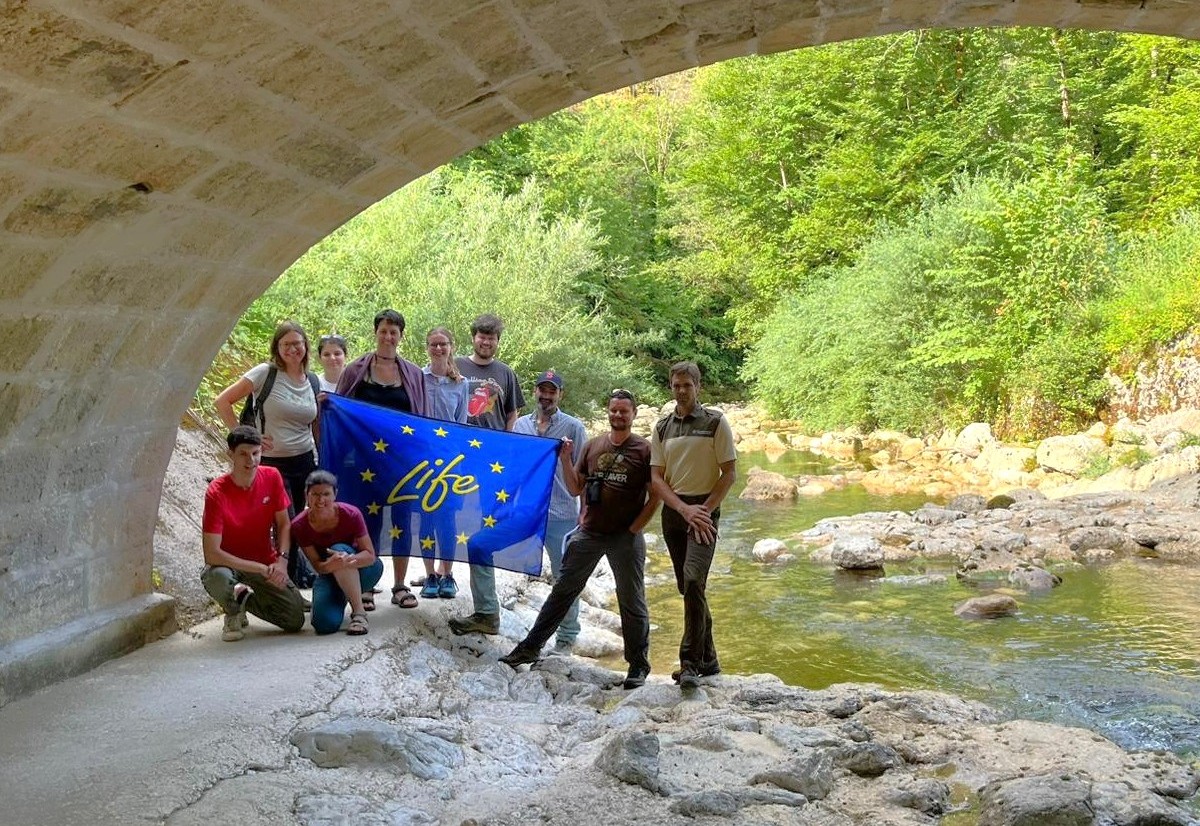21. 5. 2025
Changing the world for the better is the common thread in the work of civil society and research organizations and institutions that strive for a better future in their local communities, countries, regions, and beyond. Within the LIFE2RIVERS project partnership, we recognize that we cannot change the world—what do we even mean when we say “the world”?—in its entirety. Therefore, we have committed to a somewhat narrower, yet still very important goal: to change our relationship with rivers and with nature. First in our local communities, then in our country, region, and … beyond.

“Today we possess a great deal of knowledge about the environment and nature, and we know how to effectively apply it to understanding rivers. With knowledge, awareness, and experience, we will integrate modern approaches to river stewardship into our relationship with rivers and their ecosystems,” summarized Dr. Polona Pengal, director of the lead project partner, Institute Revivo, regarding the LIFE2RIVERS project.
According to Dr. Pengal, the project team has ambitious goals in river stewardship, aiming to connect expertise, the economy, policy, and civil society. “We will ensure that rivers have the space they need for natural processes to occur—processes that are essential for the life of rivers and, of course, benefit us humans the most. Our goal is to restore the essence of rivers—their life.”
On our journey, we are guided by two tools, two concepts. One of them is already familiar in Slovenia: nature-based solutions. The other is somewhat of a new concept, which we believe is crucial for achieving our goals: co-creative river stewardship. A better future for everyone—people, rivers, and nature—can only be ensured if we come together, listen to one another, and co-create.
So, who are the partners striving to bring rivers back to life?
Lead Partner: Institute Revivo
The Revivo Institute is a leading organization in the study of freshwater and marine waters and fish. In addition to research and educational activities, the institute continuously strives to change public perceptions of nature—shifting from the view of nature as a resource to be exploited, to understanding it as a gift and a responsibility that demands respect. For them, nature conservation is a way of life.
DOPPS – BirdLife Slovenia
The mission of the Society for the Study and Observation of Birds of Slovenia (DOPPS) is the protection of birds and their habitats, thereby contributing to nature conservation and the well-being of society as a whole. DOPPS has been fulfilling this mission since its founding in 1979, including through the restoration of the most degraded lowland river ecosystems.
Institute of ecology (IE)
The social science aspects of environmental issues in Slovenia are the focus of the Institute for Ecology. In addition to research, the institute translates key works in political ecology and green political theory and organizes activities for students. They recognize that changes in addressing the environmental crisis are driven through research, education, training, and awareness-raising.
PIC – Legal Center for the Protection of Human Rights and the Environment
Law for society and nature. PIC brings together lawyers who steadfastly defend fundamental human rights, including the constitutional right to a healthy environment. Through legal support, they assist both individuals and other non-governmental organizations and civil initiatives—because laws and rights only come to life when we know how to apply and protect them.











